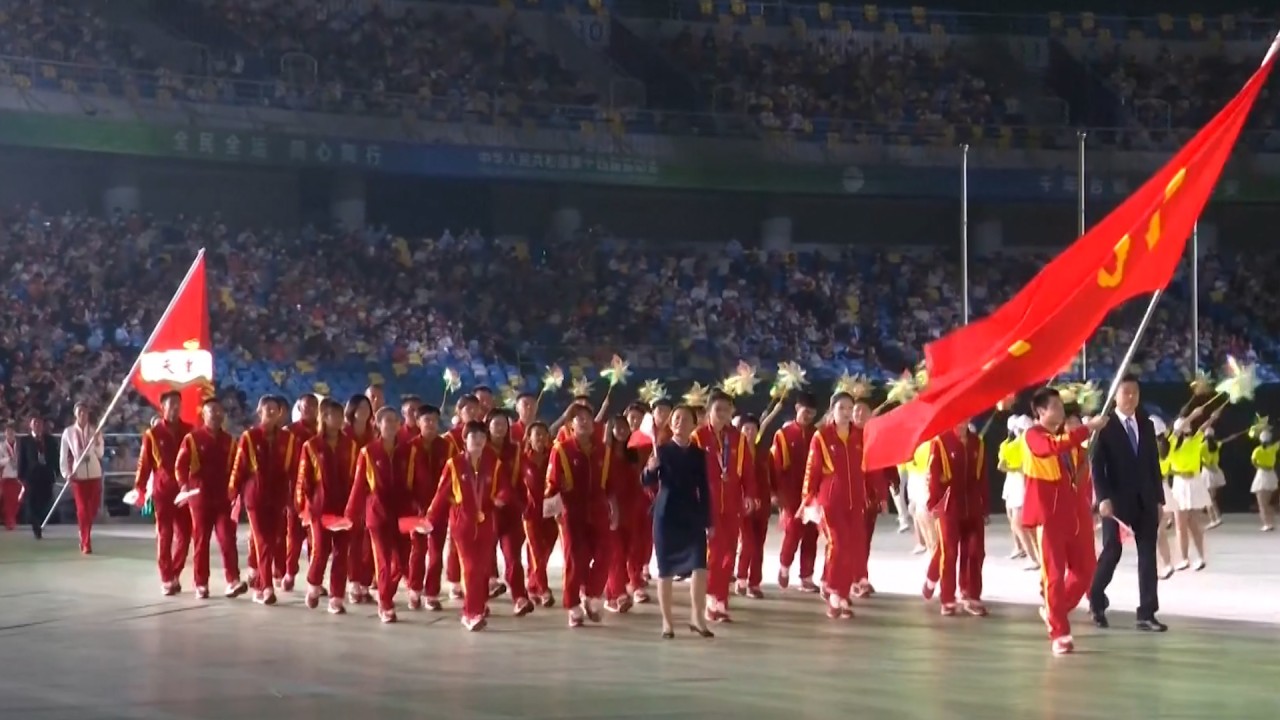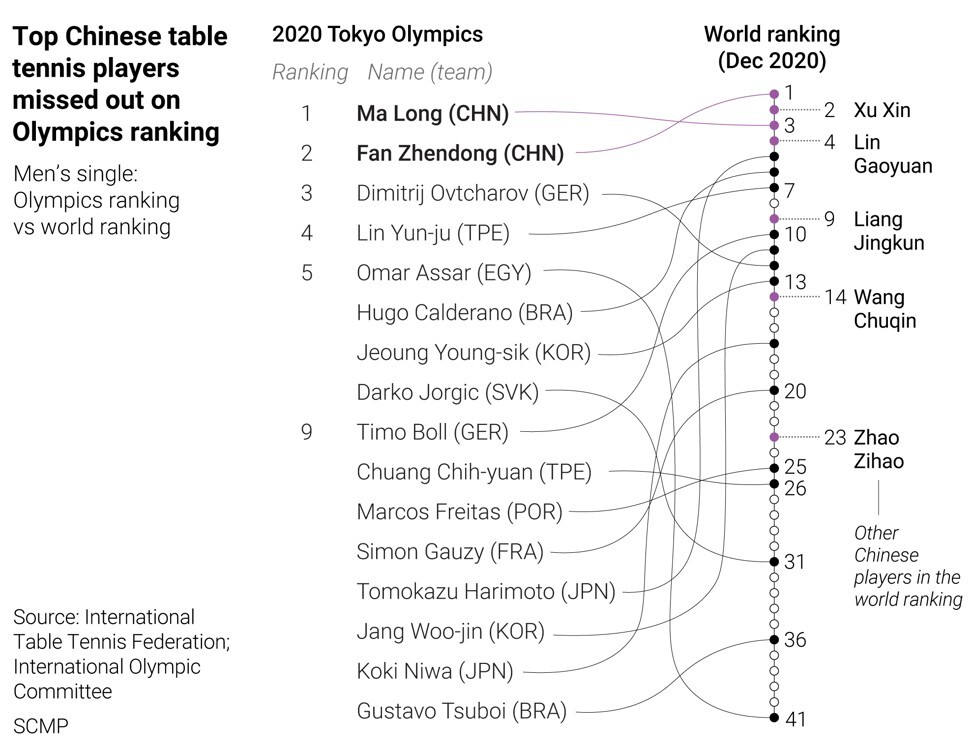
Why China’s National Games are tougher than the Olympics for table tennis players and weightlifters
- Olympic rules capping player numbers per event to prevent medals domination have left China a victim of its own success at grooming top-class athletes
- At the National Games, unfettered by representation rules, the world’s top tennis players and weightlifters test each other to set new standards of excellence
As soon as the song ended, they clapped and cheered for Ma Lin, Wang Hao and Wang Liqin, the Chinese athletes who had just won gold, silver and bronze medals at the Beijing Olympics for the men’s singles table tennis. Just like the women’s singles event the day before, China had ruled the medals podium.
But podium domination soon became a thing of the past. The International Olympic Committee (IOC) in 2010 limited each team to two athletes per singles event for the upcoming London Olympics, down from the previous three, after changing qualification rules to involve more countries and widen support for the sport.

From then on, China has found itself restricted from fielding as many teams for table tennis, a victim of its own success at grooming young players at the sport. But the National Games of the past two weeks – ending tomorrow – offer a platform to pit the world’s top athletes against each other in disciplines that China has traditionally dominated, such as table tennis and weightlifting, unfettered by representation rules.
“When a country dominates a discipline, it could undermine the sport’s development,” said Chung Pak-kwong, a professor of sports, physical education and health at the Hong Kong Baptist University.
China has won 60 medals – 32 of them gold – in the sport since its introduction in 1988, with South Korea in second place at 42.
China has bagged gold and silver medals in table tennis singles since the 2008 Olympics. Chinese athletes consistently take top spots in world rankings. As of last Tuesday, six Chinese women were in the top 10 of the singles world ranking, as were four Chinese men.
“To be honest, the standards of the National Games are higher than those of the Olympics,” said Chen Meng, the Olympic gold medallist in Tokyo for women’s singles and team table tennis, in a live stream on Chinese social media app Douyin with her teammates last weekend.
Liu Shiwen, who won a mixed doubles silver in Tokyo, agreed: “Purely speaking from the standpoint of technicality, the standards are definitely much higher.”

05:35
President Xi Jinping declares China’s National Games open at ceremony in Xian
Hou Zhihui, Olympic gold medallist in weightlifting, another sport at which China excels, finished her National Games lift with a total weight of 214kg, one more than her world record. The International Weightlifting Federation only recognises records from the Olympics, Universiade and its world championships.
“It’s too difficult! Could only win National Games by doing better than the world record! It’s harder than the Olympics! Could this be the secret of Chinese weightlifting?”, Hou wrote on Weibo after the event.
At the Olympics, each nation can only have one weightlifter qualify per weight class and four athletes at the most for each gender, across all classes.
The National Games silver medallist for Hou’s 49kg category, Jiang Huihua, finished equalling Hou’s world record. The next five weightlifters lifted more than the Olympic bronze medallist.

China has in the past opposed the rules that reduce the number of athletes each national team could send to the Olympic Games.
In approving the limit on athletes a country could field for the 2012 London Olympics, as proposed by the IOC, the International Table Tennis Federation (ITTF), the sport’s governing body, was wary that the change could be “falsely interpreted as prejudicial to China”, according to the minutes of a 2009 ITTF meeting.
The ITTF’s Asia representative, Hong Kong’s Tony Yue Kwok-leung, said at the meeting that the change would bar the world’s best players from competing and was a form of discrimination against China.
The ITTF had to meet China’s sports ministry, Olympic committee and table tennis association to convince them to accept the new rules.
When you have more than 200 nations … then many of [the athletes] won’t have the chance to compete at all
The Chinese Table Tennis Association said it disagreed with the new rule but accepted it “with regret” in the best interests of the sport. That made the 2008 hoisting of the three Chinese flags at the Olympics an enduring patriotic symbol for China.
“Each province is developing its sports programme at the same time and has produced high-quality athletes. That’s why the National Games are more competitive than the Olympics,” Chung at Baptist University said.
The IOC wants each country to be well represented and to prevent any single one from dominating the medal podium, he said.
“One of the Olympic values is participation. When you have more than 200 nations and let athletes compete purely based on their skills, then many of them won’t have the chance to compete at all.”


